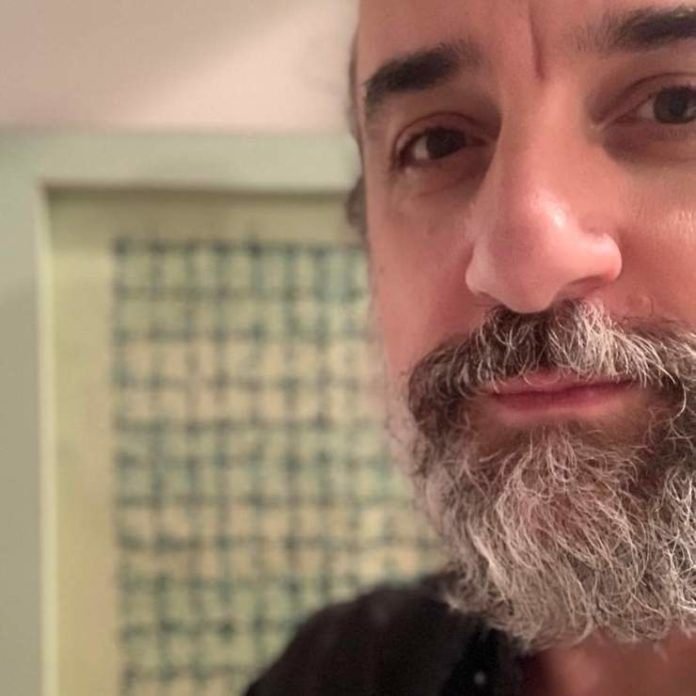“However painful and strange and alienating that act may feel,” Alan Semerdjian is determined to deliver something that goes beyond the euphemisms, the look-aways, and the cover-ups. To convey something “real,” that is something that bypasses the “press briefings trying to spin and jostle and wrestle the truth to the ground in ways we’ve grown too accustomed to seeing,” the award-winning poet, musician and educator dives into the deepest reaches of the soul to unearth the truth that has been pushed down, perhaps because it is too dark to confront. Semerdjian is “not afraid of what’s below,” however. The fifteen entries — 7:53 am-11:53 pm — of his experimental essay, “Algorithms for Loss,” (April 24, 2022), take us “deep into our hearts,” to bring us closer to the truth.
The focus of the essay is April 24, 2020, the day Kim Kardashian, the celebrity who shares her ancestry with the poet, tweeted on social media about his spoken word album, “The Serpent and the Crane,” (released on April 24, 2020), which made him world famous instantaneously. That day becomes for Alan a day of introspection and meditation, of anger and indignation, perhaps also a day of survival and celebration, but not of reconciliation. “We don’t shake hands and make up. When we think of genocide,/we do other things with our hands,” writes the poet. What happened to his people on April 24,1915, when our intellectuals, artists and poets were rounded up by the Young Turk leadership and executed, has for Semerdjian its own unique trauma that may be beyond recovery. For the “Grandchildren of Genocide,” birth is not about babies and families.
“Algorithms for Loss” goes beyond the poet’s Armenian identity, however. It connects to the global calamities — the displacements, the Palestinian people’s ongoing ordeal, the 44-day Artsakh war in 2020, the recent invasion of Ukraine, to name only a few — which inundate our lives.
“Now is a great time” to awaken folks to “do something,” urges the poet. “Explore whatever is fiercely urgent for [you] in [your] present, in [your] now,” Alan tells his Poetry Workshop students. Outside his classroom door at Herricks High School in New Hyde Park, N.Y, hangs a quote from Palestinian-American poet Suheir Hammad, which reminds him to “Do something. Start by saying something.”
Semerdjian’s “Must we lose it all to finally understand?” is heartbreaking. Indeed, the poet’s endless questioning brings us frighteningly close to the (unutterable) truth: “How come they don’t see it?” “When do we wake up?” “How far does one go before the articulation of trauma and loss become too much, unbearable?” “Are there limits to diving inwards?” Alan’s questions haunt us, and not having any answers is frustrating. But isn’t it all about asking the right questions, anyway?
Perhaps there is no happiness in our current context, and what the poet is trying to do is “to make sense of something that is incomprehensible.” He is in fact trying to put into words what no one can put into words. With the Fool in Shakespeare’s King Lear, whose prophecy he is examining with his students, the devoted teacher knows full well that things have already fallen into decay, and that going after the truth only makes an “already difficult world” even more difficult. He is also aware, however, that there are “unknown treasures in the infinite depths of the soul waiting to be revealed,” as the great visionary Kahlil Gibran advises us. “Of what can I speak save of that which is even now moving within your souls?“ the Prophet of the title of Gibran’s classic tells the inhabitants of the town gathered to hear of “your truth.”








